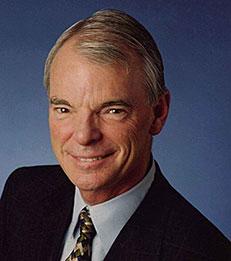Opinion
The Blurry Frontiers of Economic Policy
—


As [policy externalities] grow more significant (the result of greater global connectedness), they inevitably become harder to manage. After all, global optimization would require a global policymaking authority, which we do not have.
By A. Michael Spence
Around the world, policies, technologies, and extended learning processes have combined to erode barriers to economic interaction among countries. Pick any indicator: trade relative to global GDP, capital flows relative to the global capital stock, and so forth – all are rising.
But economic policies are set at the national level, and, with a few notable exceptions like trade negotiations and the tracking of terrorist funding and money laundering, policymakers set goals with a view to benefiting the domestic economy. And these policies (or policy shifts) are increasingly affecting other economies and the global system, giving rise to what might be called “policy externalities” – that is, consequences that extend outside policymakers’ target environment.
Of course, such externalities have always existed. But they used to be small. As they grow more significant (the result of greater global connectedness), they inevitably become harder to manage. After all, global optimization would require a global policymaking authority, which we do not have.
Read the full article as published in Project Syndicate
___
A. Michael Spence is the William R. Berkley Professor in Economics & Business.
But economic policies are set at the national level, and, with a few notable exceptions like trade negotiations and the tracking of terrorist funding and money laundering, policymakers set goals with a view to benefiting the domestic economy. And these policies (or policy shifts) are increasingly affecting other economies and the global system, giving rise to what might be called “policy externalities” – that is, consequences that extend outside policymakers’ target environment.
Of course, such externalities have always existed. But they used to be small. As they grow more significant (the result of greater global connectedness), they inevitably become harder to manage. After all, global optimization would require a global policymaking authority, which we do not have.
Read the full article as published in Project Syndicate
___
A. Michael Spence is the William R. Berkley Professor in Economics & Business.
